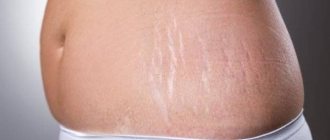How to get out of a diet
During a diet, the hormonal and nervous systems of the body are rebuilt, there is a surge in some hormones and suppression of others, and the metabolism changes. The more flexible the diet, the easier it is for you to maintain it and the less its negative impact on physiology. To compensate for changes in the body during a diet, you need to exit it smoothly.
How to get out of a diet correctly?
Increase your current caloric intake by 10% and stick to it for 3-4 days. If your weight continues to fall, then increase your caloric intake by another 100-150 kcal and monitor the changes further. The goal is to achieve a state in which the weight does not decrease, but also does not increase very quickly. In steps of 100-150 kcal over 3-4 weeks you will reach maintenance caloric intake when the weight does not increase or fall.
Don't worry if you gain a couple extra pounds during this period. Firstly, this is not so much and this is a variant of the norm, and secondly, you can burn them, creating a calorie deficit.
Proper nutrition
There needs to be a strict restriction on fried foods. It is better to replace them with boiled or stewed ones. In a pinch, grilled vegetables, meat and fish will also work.
To avoid breakdowns during the process of losing weight and maintaining weight, you need to eat varied. It would be good to fill the refrigerator with healthy foods - fish and lean meats, fruits and vegetables (can be frozen). It’s a good idea to always have low-fat dairy products and eggs on hand. You can snack on berries and dried fruits. During this period, it is better to purchase cereals and products made from wholemeal flour.
It is necessary to give up strong alcoholic drinks - they dull attention to the food consumed and also increase appetite. You can have a drink sometimes, but it’s better to drink dry red wine. It helps normalize digestion and metabolism.
It is worth doing a general cleaning in the kitchen - removing jam, sweets and cookies from sight. Their place on the table should be taken by apples, carrots, and any other fruits and vegetables. Berries will also fit perfectly into this company.
To reduce the number of calories you consume, you can reduce your portion sizes. To do this, deep plates need to be replaced with dishes of smaller dimensions.
We monitor our diet
I will say right away that the success of maintaining weight will greatly depend on what kind of diet and lifestyle you had while losing weight. The best diet is one that you can stick to for a long time.
If your diet was monotonous, you constantly struggled with bouts of hunger, denied yourself the food you love so much, perceived the diet as deprivation and restrictions, and did not engage in physical activity, then the chances of maintaining the lost weight are minimal.
As soon as you return to your usual diet and lifestyle before the diet, the weight will return, and even in excess. For the body, losing weight is stressful, and it will store extra pounds as compensation in case you want to lose weight again.
The healthy approach is to develop a comfortable diet and lifestyle while losing weight that you can easily maintain for the rest of your life.
I wrote a separate article where I tell you step by step how to approach the process of losing weight adequately and without violence against your own body. Go to:
A step-by-step system of where to start losing weight at home.
Therefore, no matter what diet you had while losing weight (rigid or flexible), your diet to maintain weight should now meet the following rules:
- Sufficient amount of protein.
- Sufficient amount of fat.
- Carbohydrates at least 100 g per day.
- Choosing foods that fill you up well.
- Optimal drinking regime.
- Do not deny yourself your favorite but unhealthy food.
These recommendations will allow you to restore metabolism and other aspects of physiology from the effects of diet. Individuals with insulin resistance may benefit from a strategy that involves reducing carbohydrates and increasing unsaturated fats to better manage their diet and well-being.
Sufficient amount of protein
To maintain weight, recommendations boil down to the following standards:
- 1.6-1.8 g per 1 kg of body weight if you engage in strength sports;
- 1-1.2 g of protein per 1 kg of weight, if you do not have physical activity.
However, Lyle MacDonald, a great expert in the field of physiology, recommends maintaining a high protein intake for the first time (3-4 weeks), the same as you had during the diet [1].
I wrote more about choosing high-protein foods and protein intake standards on a diet in this article.
Protein is very satiating [2, 3, 4]. Eating high-protein meals helps us stay full longer, which helps us control our calorie intake. Plus, a sufficient amount of protein and regular strength training increase muscle mass, reducing fat mass.
Sufficient amount of fat
Fats are vital substances. Excluding them from your diet is simply dangerous. The health of the skin, hair, nails, bone, hormonal, cardiovascular, immune, reproductive, and nervous systems directly depends on the quantity and quality of incoming fats.
Things to remember:
- Try to consume different sources of fatty acids from natural foods.
- Don't avoid saturated fats. Animal fat and butter are healthy.
- Limit your trans fat intake to 1% of your daily calories.
- Polyunsaturated omega-3 fatty acids are essential and must be supplied to our bodies daily. The best sources of omega-3 are fatty fish (salmon, mackerel, herring), seaweed and vegetable oils. I will write a separate article about omega-3, stay tuned for updates.
- Fat intake in general should be 20-35% of daily calories.
I talk in great detail about sources of healthy fats, as well as unhealthy fats, here.
At least 100 g carbohydrates per day
Moderate amounts of carbohydrates will increase your thyroid hormone and leptin levels [1]. The latter is responsible for accelerating energy consumption and slowing down the processes of fat deposition in reserve.
Choose foods that fill you up well
The longer you stay full, the lower the risk of overdoing it on calories.
Some tips to stay full longer:
- Adequate protein intake per day.
- Complete, complete meals. Large portions of protein, fats, carbohydrates and fiber, for example, a side dish of meat and a plate of salad with spices, will fill you up much better than a snack of chocolate or cookies with tea.
- Choose foods with a low glycemic index (slow carbohydrates).
- A portion of sweets after the main meal. You are already full, and now you are also satisfied!
I talked in detail about how to control hunger here.
Low glycemic index foods raise and lower blood glucose levels more slowly than high glycemic index foods. As a result, we feel fuller longer. The GI of a product depends on the method of its preparation and other conditions, plus the individual characteristics of each organism have not been canceled. Therefore, check in practice which foods satiate you longer
Optimal drinking regime
Main rule:
Do not feel thirsty, do not consciously refuse liquids, drink when you want.
At least 2 liters of water, aim for light and clear urine color.
If you have symptoms of water imbalance, such as swelling, weight changes, dehydration, then go to the article where I tell you how to normalize your water balance.
Sweets are allowed!
There are practically no junk foods except trans fats. We all love sweets, baked goods, fried foods, fast food and fatty foods because they are delicious. The disadvantage of such food is that it is high in calories and does not fill us for long . If you do not monitor your calorie intake, then there is a high risk of overdoing it, which will result in extra pounds.
To prevent this, use the 80/20 rule:
Let 80% of the calorie content of your diet be healthy foods, and give 20% to conditionally harmful ones.
From a psychological point of view, this is a huge plus. You allow yourself what you love, limiting only the serving size of such dishes.
If you can't resist a sweet dessert, eat it after a comprehensive meal of protein, fat, carbohydrates and fiber. The volume of food in the stomach and the level of satiety will already be high and you will not want to eat much. Use this technique in your diet.
What happens after the diet?
Scientists who have studied this issue confirm that after a diet, in most cases, the excess weight returns after some time. For example, psychologists from the United States, who analyzed the most ambitious studies of weight loss due to diets in recent years, noted that over time the lost kilograms returned, after which people also gained additional weight.
In addition, it was noted that such weight “jumps” had a bad effect on overall health, causing problems with blood vessels and the heart, increasing the risk of diabetes and stroke , and causing dysfunction of the immune system . As a result, American scientists came to the following conclusion: diets are not an effective way to lose excess weight.
But at the same time, American experts also identified a number of reasons due to which the weight could not be maintained after losing weight. The return of lost kilograms in people whose body condition was analyzed by scientists occurred if:
- after the diet, the person lost 20% of weight or more;
- weight dropped rapidly, in a very short time;
- people spent more than five hours a day sitting at a computer or TV.
Interestingly, if people managed to maintain their new weight for six months, then it was easier to maintain it further, since the brain perceived these indicators as the norm, which made it easier to further maintain body weight.
We carry out regular measurements
To track changes after a diet and make adjustments to your diet and lifestyle, it would be good to regularly:
- Weigh;
- Measure your fat percentage;
- Take pictures.
Both during and after the diet, weigh yourself daily in the morning and on an empty stomach after using the toilet. Track dynamics. It is important to understand that weight fluctuates greatly throughout the day, so it is better to look at your weight changes over the course of a week and understand where it is going.
Once every 2-4 weeks, measure the percentage of subcutaneous fat using one of the methods suggested in this article:
10 methods to measure your body fat percentage.
It is also better to take measurements in the morning on an empty stomach, observing the conditions of the previous measurement, for example, the location of the skin fold when measuring with a caliper or the place where body circumference was measured with a measuring tape.
Take control photos every 1-2 weeks to understand how your body is changing. A few rules:
- Take photos at the same time under the same conditions.
- The body proportions and light in the photo should be the same. To make the pictures more similar to each other, hold a magazine or phone in your hand and achieve the same proportions of these objects.
- Take pictures in the same underwear.
Photography example
How to maintain weight after losing weight: the basics of proper nutrition
Many people who are losing weight, looking for an answer to how to maintain weight after losing weight forever, noted that it is impossible to solve this problem without following nutritional rules. It is necessary to create a system, divide the allowable amount of food into several meals. When creating a menu, you need to consider the following rules:
- It is advisable to prepare food yourself. Convenience foods, fast food and snacks on the run should be forgotten. Select foods carefully, monitor the amount of fat and salt in them.
- You need to salt your food as little as possible. It is not necessary to eat everything fresh, but highly salted foods should be excluded. Salt is the main enemy of a slim body, as it leads to swelling.
- Don't stop counting calories. You need to know at least approximately how many calories you consume per day. Exceeding the norm greatly will lead to fat deposits.
- You can't overeat. You should always get up from the table with the feeling that you could eat something else. It is important to remember that the signal of saturation does not reach the brain immediately, so you should not eat until your stomach becomes heavy.
- You should not consider food as an encouragement, a distraction, or a sedative. If you have eating disorders or stress eating, you need to consult a psychologist.
- Try not to distort the taste of the dish with strong frying, an abundance of spices and sauces. You need to learn to feel the real taste of food without adding flavor enhancers and hot seasonings.
- You need to eat slowly and at the table. Eating in front of a computer or TV much more often leads to overeating, since a person is distracted and does not notice what and how he eats.
- It is advisable to eat porridge for breakfast, and non-rich soups for lunch. Dinner should be as light as possible, but nutritious. You can eat fish, chicken, vegetables. You need to snack on dried fruits, dairy products, and fresh fruits.
- You don't have to completely eliminate sweets. You can allow yourself to eat marshmallows, marshmallows, honey, and some biscuits. The greatest harm to the figure comes from cream cakes and pastries, rich sweet pastries, and milk chocolate.
- Strong coffee should be avoided. It leads to dehydration of the body. For those who cannot imagine a morning without coffee, this will be difficult, but necessary. It is better to replace coffee with green tea without sugar or a chicory drink, but try not to add sugar and cream to it.
A nutritionist can give useful advice on how to maintain weight after losing weight. To make it easier to adhere to the rules, you need to eliminate temptations. You shouldn't buy and store cakes just to eat them later. It’s good if your family supports your desire to eat healthy.
Keep counting calories and then eat intuitively
You can count calories using a kitchen scale, but you can do without them, I wrote about this in the article:
How to learn to count calories correctly.
Although counting calories is the most accurate method of estimating your calorie intake, you don't have to do it all the time. If you have been counting calories for 2-3 months and can quite accurately determine the calorie content of dishes by eye, then you can abandon strict calculation.
Try staying on intuitive eating for a while, tracking your weight, body fat percentage and taking control photos. You can always make adjustments to your diet. And in the most difficult case, return to counting calories.
Breakfast lunch and dinner
And also a second breakfast and a couple of snacks - this is what the daily menu of someone who keeps fit should look like. It is very important to eat regularly, little by little, every 3-4 hours. Failure to adhere to the diet often leads to gaining extra pounds, both initially and after losing weight. Moreover, both constant “chewing” and rare, but too plentiful meals.
It is also important to observe the drinking regime: for every kilogram of weight per day you should receive 30 ml of water or unsweetened tea. This is necessary to maintain a normal metabolism, and also not to eat too much: many people have difficulty distinguishing between hunger and thirst.
The diet should contain all food groups: grains, vegetables and fruits, dairy products, fats and proteins. The exclusion of any of them leads to a lack of vitamins and minerals. To get them, the body sends signals of hunger, and the person inevitably overeats.
We are training
Training is necessary and important. If you have not yet started training and you have no contraindications to sports, then now is the time to start. This will not only increase your energy expenditure, but will also allow you to build an attractive figure after successful weight loss.
During the period of maintaining body weight, train as usual. Give each muscle group a workout twice a week - 3-4 approaches to large muscle groups (back, chest, legs) and 2 approaches to small muscle groups (calves, biceps, triceps, shoulders) without fanaticism. You can add low-intensity cardio 2-3 times a week for 40-60 minutes.
After the end of the weight stabilization phase (3-4 weeks), you can move on to a program for muscle growth.
Rules for maintaining weight
Despite the skepticism of many scientists towards diets, it is still possible to not gain weight and maintain weight after a diet. After all, numerous dietary systems are practiced by many people in the world, and many of them manage to achieve positive results and maintain them. To avoid gaining weight after losing weight, you need to adhere to the following rules:
- It is recommended that you get into the habit of weighing yourself regularly. Experts advise weighing yourself once a week. Since weight can fluctuate throughout the day, there is no point in weighing yourself every day. But checking your body weight once a week on a certain day will give you the opportunity to see a more accurate picture. You need to check your body weight in the morning on an empty stomach. The result obtained should be written down in a notebook, and this will allow you to track the dynamics of weight changes and take timely measures to prevent the re-gain of extra pounds. If body weight has increased by 2 kg or more, the menu should be adjusted and the intensity and frequency of physical activity should be increased. In addition, you should analyze the features of your lifestyle and understand what exactly triggered the weight gain in order to prevent similar mistakes later. You can also control your body weight by measuring volumes - a centimeter can also tell you how stable the situation is.
- To maintain weight, you need a proper diet. Throughout the day there should be at least three full meals and two snacks (second breakfast and lunch). If the body does not receive food for a long time, the metabolism slows down. And if a person misses one meal, then the next time he eats too much, which will lead to excess calories.
- Variety is important - the diet should contain all the minerals and vitamins . It will not only ensure the normal functioning of the body, but will also allow you to maintain weight after it has decreased. Therefore, it is important to buy a variety of foods and cook a variety of meals. If there are different products on the menu, this will reduce the likelihood that a person will want something that is not very healthy. In addition, even a healthy diet provides for certain indulgences. From time to time, you can eat a small amount of a dish that, in fact, is not on the healthy list. But if you eat a piece of cake once a week, it won’t harm your figure, but it will help you avoid relapse later.
- Proper nutrition involves not only a healthy menu, but also getting used to a moderate amount of food consumed. Initially, you need to get used to smaller portions than before the diet. For those who are interested in how to maintain weight after a diet, nutritionists advise adopting the following rule: visually dividing the plate into four parts, filling two of them with vegetables or fruits, one with protein foods and one with carbohydrates. This will allow you to have a varied diet without gaining weight again. For those who are accustomed to practicing separate meals, it is recommended to fill three parts of the plate with vegetables or fruits, and one with either proteins or carbohydrates.
- To maintain weight, it is recommended to regularly eat certain foods that help activate the fat burning process. For example, it is worth introducing pineapple into the menu, which can be eaten both before and after meals. Grapefruit also activates fat burning. It is worth seasoning dishes with a variety of spices - pepper, turmeric, cardamom, ginger, etc. However, we should not forget about the opposite effect of spices: they cause appetite.
- The best way to maintain weight is through regular physical activity. If a person actively performs physical exercise for 30-40 minutes every day, this will help keep the body in good shape. However, it is equally important to say goodbye to a sedentary lifestyle. For example, office workers are recommended to take a break for 5-10 minutes every hour and walk up and down the stairs. You should also walk outside more, if possible, replacing trips on public or private transport with walks. It is best to practice those types of loads that a person likes. Otherwise, he will soon become bored with the sport, and the risk of returning to the lifestyle from the past will increase. You can swim, ride a bike, play outdoor games, etc.
- A very useful habit for those who want to maintain weight is the ability to enjoy food. If a person tries to enjoy every bite, he eats much slower and gets full faster. Therefore, after a diet, it is better not to eat in front of a TV or monitor - eating should be slow and enjoyable.
- It is very important that the menu is dominated by natural, rather than canned and frozen foods. As for fried foods, in the future you don’t have to give it up completely. But it is better to cook such dishes on the grill.
- Another relevant tip is to visit stores and food markets well-fed. A hungry person always buys more products, and not always healthy ones.
- It is important to try to avoid stressful situations and keep yourself busy with interesting things so as not to constantly think about food. The correct daily routine is no less important. After all, if a person goes to bed long after midnight, then the likelihood of having a late dinner and snacking on junk food before bed increases significantly.
- To “healthy” your diet after a diet, it is important to learn how to cook healthy meals. The right goal should not be an effective diet without losing weight, but a healthy diet in general. It’s not difficult to stick to it, because there are many recipes for delicious dishes. You should definitely check them out to see that healthy cooking can be delicious.
Method 1
Let's start with the fact that the diet must be correct, this is the key to weight stability. If you were on strict diets, thereby creating stressful situations for your body, and then after a certain time you returned to your previous diet, then the kilograms that quickly disappeared will also quickly return to you, and they will even bring “friends” with them.
Your goal should not just be weight loss, but normalization of the nutrition process. You must slowly rebuild your body, adapt it to new healthy foods.
Conclusion - do not give up food completely for a while, eat often, but little by little, exclude harmful foods from your diet. Create a small calorie deficit, but nothing more.
Victory. Renee Zellweger: -20 kg
In 2000, for her role in the first part of Bridget Jones's Diary, the actress was forced to overeat, consuming 4,700 calories a day. After gaining weight for the role, the star could not lose weight for a long time. She started working out intensely, running, and went to the pool. Cosmetic procedures and massage helped tighten stretched skin.
The famous Atkins diet helped Renee lose weight. This protein diet forces you to give up carbohydrates in favor of proteins. I had to exclude flour, sweets, starchy vegetables, sweet fruits, salt, oil, caffeine and alcohol. Five times a day she ate small portions of turkey, fish and steamed vegetables. She washed down every meal with grapefruit juice. But such a diet, according to nutritionists, is not suitable for people with kidney problems: proteins only aggravate the problems.
Emotional instability
You decide to lose weight and really want it, so you limit your diet, plan your diet, and increase physical activity. But as soon as the diet ends, you feel relief and relax. This is a big mistake. The weight begins to return quickly.
You may experience various conflicting emotions: fear, anger at yourself, fatigue. They will be followed by disappointment, feelings of failure, and negative thoughts that cause stress and anxiety. Emotional instability appears.
There is a high probability that you will begin to indulge yourself more and more often with your favorite high-calorie foods to reduce anxiety and nervousness, and this will lead to gradual weight restoration. The circle will close.
To maintain weight after a diet, monitor your emotional state so as not to “eat” problems, but eat only when you are really hungry. If such attacks occur more and more often, contact a specialist, do not delay.
Method 7
And, of course, having reached the desired number on the scales, you need to continue to weigh yourself constantly. If you see that the scale arrow has begun to go higher, it means you need to adjust your diet. If you weigh yourself regularly, you will willy-nilly try to keep your weight under control.
By following these simple tips, you can easily maintain your normal weight. You just have to try a little and everything will work out!
How many kilograms did you manage to lose? Is it possible to keep the weight at the same level?











